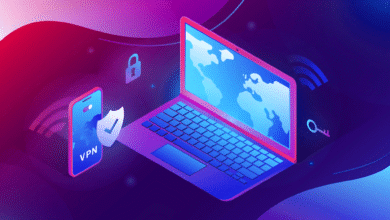
In this article, we will discuss how the metaverse can potentially revolutionize the future of remote work. The concept of the metaverse has been around for quite some time now. It is a virtual world that has its own economy, social interactions, and even laws. It is a space where people can interact with each other, engage in commerce, and live their lives in a completely digital environment. With the ongoing pandemic, the concept of remote work has gained a lot of popularity. People are now realizing that remote work is not only feasible but also offers many benefits.
- Definition of the metaverse
- Emergence of remote work and its popularity
- Importance of the metaverse in remote work
How the Metaverse Works
- Overview of how the metaverse works
- Virtual worlds and their role in the metaverse
- The economy of the metaverse
- The social interactions in the metaverse
- The legal framework of the metaverse
The Future of Remote Work

- Advantages and disadvantages of remote work
- The potential of the metaverse in remote work
- Increased efficiency and productivity in the metaverse
- Flexibility in the metaverse
- Reduced costs and overheads in the metaverse
- Enhanced communication and collaboration in the metaverse
Challenges and Limitations of the Metaverse in Remote Work
- Infrastructure and technical challenges
- Security and privacy concerns
- The impact of the metaverse on physical health
- The psychological impact of the metaverse
- The ethical and legal challenges of the metaverse
Conclusion
- Summary of the benefits of the metaverse in remote work
- Challenges that need to be addressed
- The potential of the metaverse in transforming the future of remote work
The concept of the metaverse was first introduced in Neal Stephenson’s 1992 novel, Snow Crash. It is a virtual world that exists entirely in the digital realm, where users can interact with each other, engage in commerce, and even live their lives in a completely virtual environment. The idea of the metaverse has been around for quite some time now, and with the ongoing pandemic, it has gained a lot of traction. With more and more people working from home, the metaverse can potentially revolutionize the future of remote work.
Remote work has become increasingly popular in recent years, with many companies allowing their employees to work from home. This trend has only accelerated during the pandemic, where people have had to adapt to new ways of working. While remote work has its advantages, it also has its challenges. One of the main challenges is the lack of social interaction and the feeling of isolation that comes with working remotely. This is where the metaverse comes in.
The metaverse can potentially solve the challenges of remote work by providing a digital space where people can interact with each other and engage in social activities. It can also provide a platform for commerce, allowing people to buy and sell goods and services in a completely virtual environment.
How the Metaverse Works
The metaverse is essentially a virtual world that exists entirely in the digital realm. It is made up of different virtual worlds, each with its own economy, social interactions, and even laws. Users can create their own avatars and navigate through these virtual worlds, interacting with other users and engaging in various activities.
Virtual worlds are a crucial component of the metaverse. They provide a platform for users to interact with each other and engage in social activities. They also provide a platform for commerce, allowing users to buy and sell goods and services in a completely virtual environment.
The economy of the metaverse is another critical component. Just like in the real world, users in the metaverse can earn virtual currency,
The economy of the metaverse is another critical component. Just like in the real world, users in the metaverse can earn virtual currency, which can be used to purchase virtual goods and services. This creates a virtual economy that is entirely separate from the real-world economy. Users can engage in various economic activities, such as buying and selling virtual assets or creating and selling virtual goods.
Social interactions in the metaverse are also an essential component. Users can interact with each other through text, voice, and video chat. They can participate in various social activities, such as virtual parties or concerts, and even attend virtual conferences and meetings.
Finally, the metaverse also has its own legal framework. Just like in the real world, there are rules and regulations that users must follow. This legal framework ensures that users can engage in various activities without fear of harassment or other forms of abuse.
The Future of Remote Work
Remote work has become increasingly popular in recent years, with many companies realizing the benefits of allowing their employees to work from home. The ongoing pandemic has only accelerated this trend, with many companies shifting to a remote work model to keep their employees safe.
However, remote work also has its challenges. One of the main challenges is the lack of social interaction and the feeling of isolation that comes with working remotely. This is where the metaverse can potentially revolutionize the future of remote work.
The metaverse can provide a digital space where remote workers can interact with each other and engage in social activities. It can also provide a platform for commerce, allowing remote workers to buy and sell goods and services in a completely virtual environment.
In addition, the metaverse can increase efficiency and productivity in remote work. By providing a virtual workspace, remote workers can eliminate many of the distractions that come with working from home, such as family members or pets. They can also collaborate more effectively with their colleagues by using various tools and technologies that are specifically designed for the metaverse.
Another advantage of the metaverse in remote work is its flexibility. Remote workers can work from anywhere in the world, as long as they have an internet connection. This means that they can work from the comfort of their own homes or from exotic locations around the world.
Finally, the metaverse can reduce costs and overheads in remote work. By eliminating the need for physical offices and other infrastructure, companies can save a significant amount of money. This can be especially beneficial for small businesses that may not have the resources to invest in expensive office spaces.
Challenges and Limitations of the Metaverse in Remote Work
While the metaverse has many potential benefits for remote work, there are also several challenges and limitations that need to be addressed.
One of the main challenges is infrastructure and technical limitations. The metaverse requires a robust and reliable internet connection, which may not be available in all areas. In addition, the technology required to access the metaverse may be expensive or difficult to use, which could limit its accessibility.
Security and privacy concerns are another challenge. The metaverse requires users to share personal information, such as their name and contact details, which could be vulnerable to hacking or other forms of cybercrime. Companies must ensure that they have robust security measures in place to protect their employees’ personal information.
The impact of the metaverse on physical health is also a concern. Spending too much time in a virtual environment can have negative effects on physical health, such as eye strain, headaches, and even motion sickness. Companies must ensure that their employees take regular breaks and practice good ergonomics to prevent these health issues.
Finally, the psychological impact of the metaverse is another concern. Spending too much time in a virtual environment can lead to feelings of isolation and detachment from the real world. Companies must ensure that their employees maintain a healthy balance between their virtual and real-life interactions to prevent negative psychological effects.
Read More:The Rise of the Metaverse: What It Means for Social Media in 2023
Conclusion
The metaverse is a rapidly evolving concept that has the potential to transform the way we work, play, and interact with each other. As remote work becomes more prevalent, the metaverse can provide a solution to the challenges of isolation and lack of social interaction that remote workers face. It can also increase efficiency and productivity, reduce costs and overheads, and provide a flexible and accessible workspace.
However, there are also challenges and limitations that must be addressed, such as infrastructure and technical limitations, security and privacy concerns, and the impact on physical and psychological health.
As technology continues to advance and the metaverse becomes more accessible, it will be interesting to see how it evolves and how it will impact the future of remote work.
FAQs
- What is the metaverse? The metaverse is a virtual world that is completely separate from the real world, where users can engage in various activities such as socializing, gaming, and commerce.
- How can the metaverse benefit remote work? The metaverse can provide a digital space where remote workers can interact with each other and engage in social activities, increase efficiency and productivity, reduce costs and overheads, and provide a flexible and accessible workspace.
- What are the challenges of the metaverse in remote work? Some of the challenges of the metaverse in remote work include infrastructure and technical limitations, security and privacy concerns, and the impact on physical and psychological health.
- Will the metaverse completely replace physical offices? It is unlikely that the metaverse will completely replace physical offices, but it can provide a complementary solution to remote work challenges.
- How can companies ensure their employees maintain a healthy balance between virtual and real-life interactions? Companies can encourage employees to take regular breaks, practice good ergonomics, and maintain a healthy balance between their virtual and real-life interactions.











